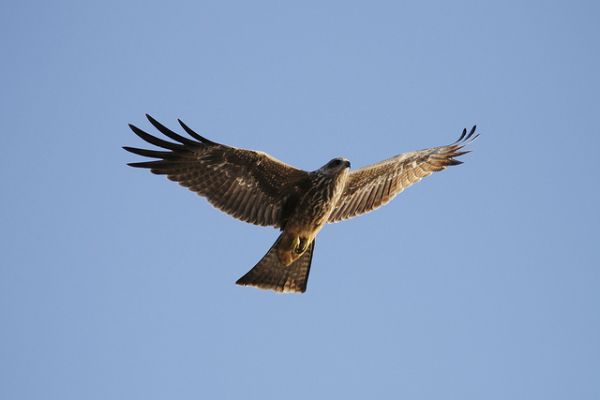 Witnesses
in Australia have seen black kites and brown falcons carrying burning
twigs to dry areas, then dropping them, spreading wildfires in the
Australian bush.
Witnesses
in Australia have seen black kites and brown falcons carrying burning
twigs to dry areas, then dropping them, spreading wildfires in the
Australian bush.Why? Because fire drives small food animals, such as mice and lizards, out of hiding to escape the fire. Then they are visible and vulnerable to the birds. One witness named Bob Gosford explained:
Mr Gosford told the IFL Science website: 'Reptiles, frogs and insects rush out from the fire, and there are birds that wait in front, right at the foot of the fire, waiting to catch them.Scientists are a bit more skeptical:
'Small fires often attract so many birds that there is insufficient fleeing prey for all, so a bird that was being beaten to its food might benefit from starting a new fire with less competition.'
The researchers found numerous accounts from Aborigines, several firefighters as well as 14 Bush rangers who reported birds carrying burning sticks.
Steve Debus, from the University of New England, an expert in predatory birds said he believed it would be difficult for researchers to distinguish between birds incidentally grasping burning twigs with prey and those deliberately picking them up.
'However, I think black kites and brown falcons are sufficiently intelligent to intentionally spread fires by dropping burning embers, because black kites have been seen to drop bread scraps from picnic areas into nearby waterholes to bait fish within striking range.' Dr Debus said.

No comments:
Post a Comment